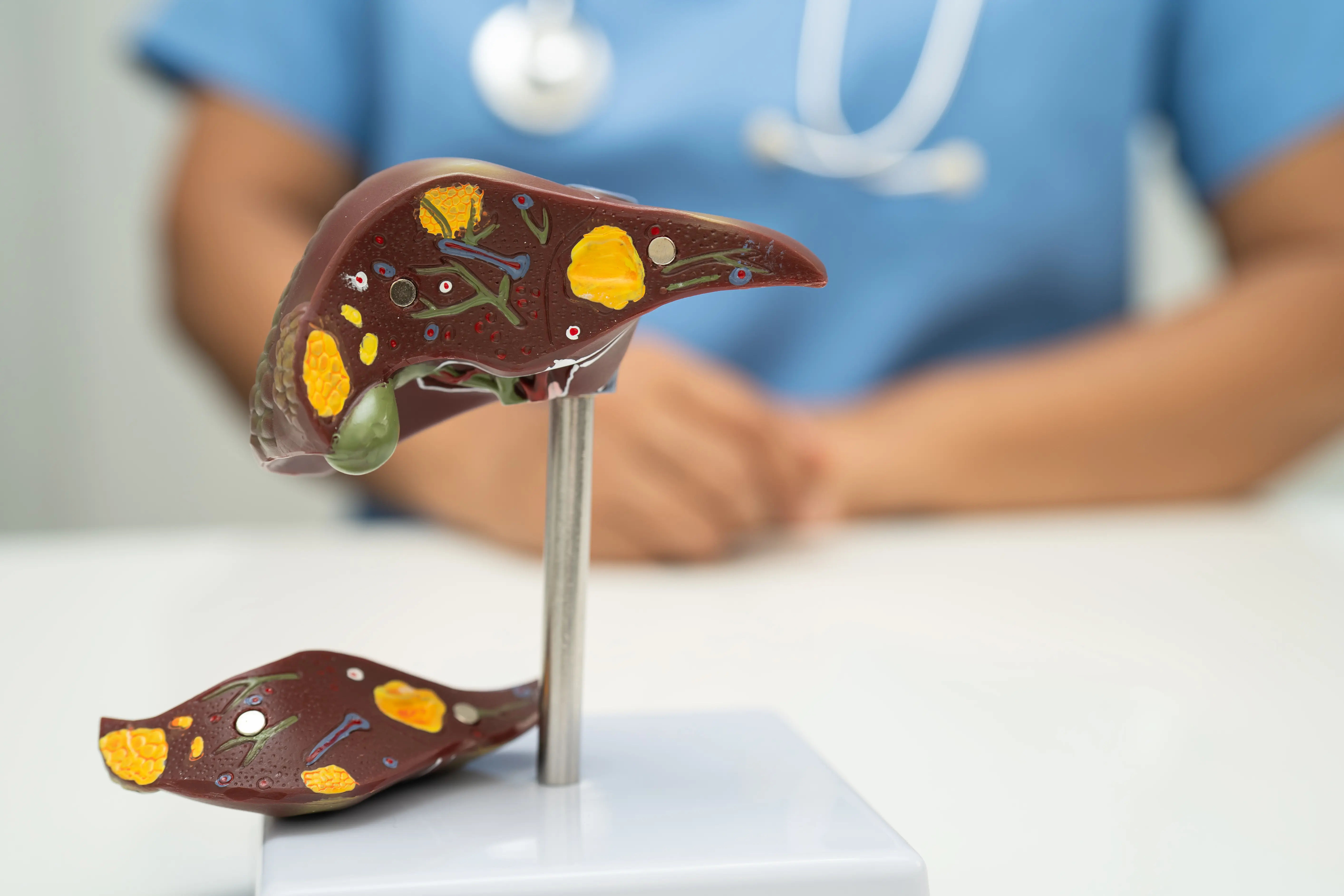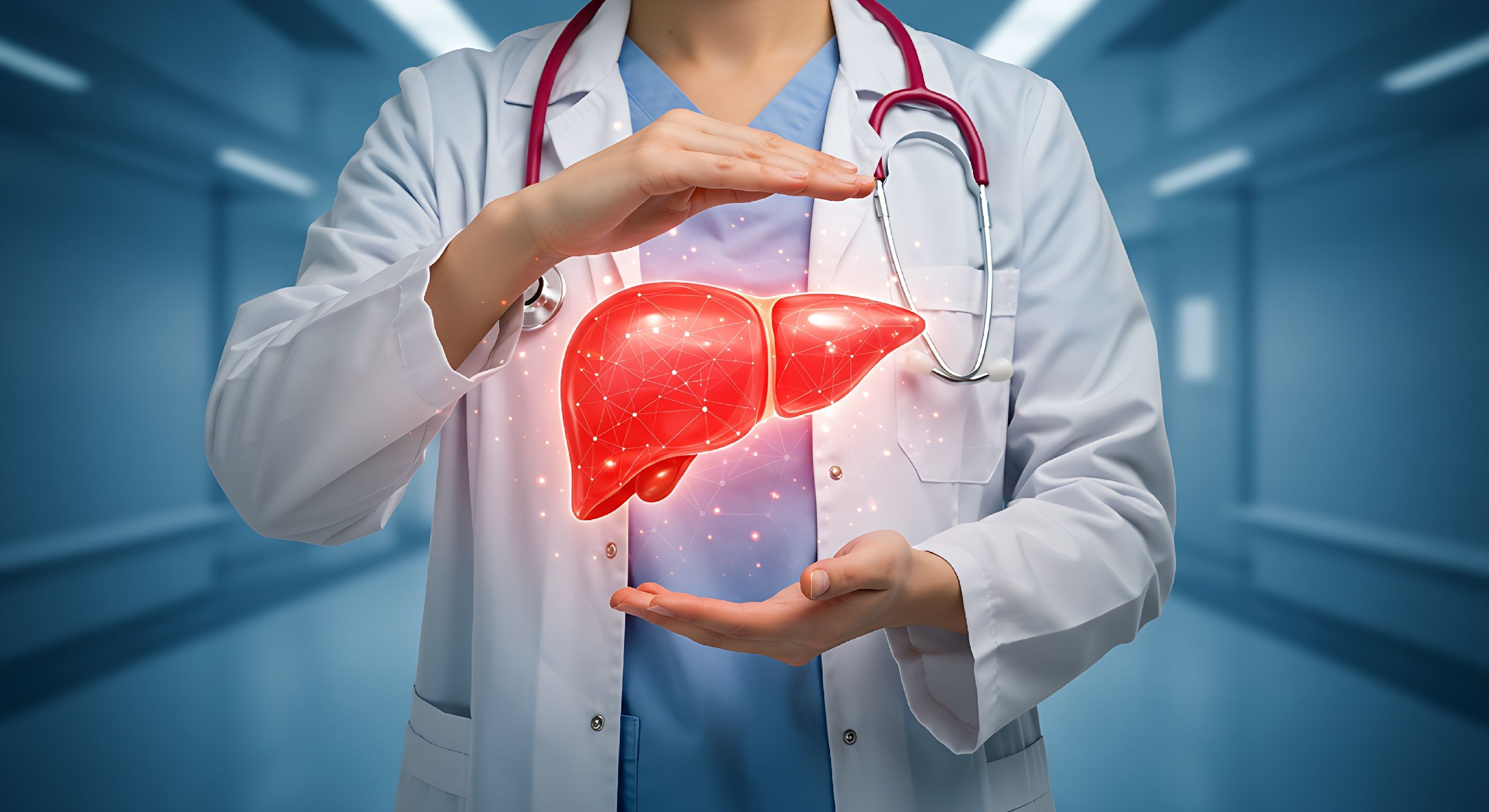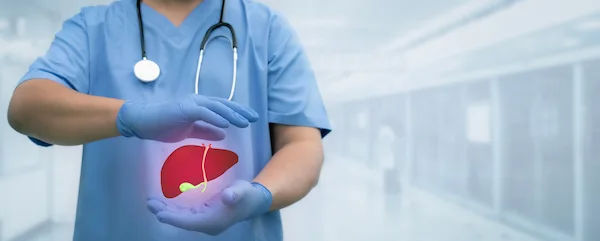Understanding Abnormal Liver Tests: Causes, Symptoms, and Treatment
Understanding abnormal liver tests: Learn about causes, symptoms, and treatment. Discover what your liver test results mean and what to do next.

Written by
Last updated on 3rd Jul, 2025
Introduction
When your doctor orders liver function tests (LFTs), the results can sometimes come back abnormal. This can be confusing and even a little scary. But what do these results really mean? Abnormal liver tests (LFTs) occur when the levels of enzymes, proteins, or substances measured in a liver panel deviate from the normal range. These deviations can signal liver damage, disease, or other systemic health issues requiring medical attention.
An abnormal LFT result doesn’t always confirm a specific diagnosis but serves as an important indicator for further investigation. Understanding the causes, symptoms, and appropriate treatment options is crucial for addressing underlying liver dysfunction and preventing complications.
What Are Liver Function Tests?
Liver function tests (LFTs) are a group of blood tests that measure various enzymes, proteins, and substances produced by the liver. These tests help assess liver health and detect abnormalities. Key components evaluated in LFTs include:
Alanine aminotransferase (ALT) and Aspartate aminotransferase (AST): Elevated levels of these enzymes can indicate liver inflammation or damage.
Alkaline phosphatase (ALP): High levels may suggest bile duct problems or liver disease.
Gamma-glutamyltransferase (GGT): Elevated levels can indicate liver disease or bile duct issues.
Bilirubin: High levels can cause jaundice and suggest liver dysfunction.
Albumin: Low levels of this protein can indicate reduced liver function.
Abnormal results arise when LFT values deviate from their normal ranges. Such results may occur due to infections, inflammation, metabolic disorders, or even external factors like medications and alcohol consumption.
Symptoms Associated with Abnormal LFTs
Abnormal LFT results are often identified in patients exhibiting symptoms of liver damage or related conditions. Key symptoms include:
Jaundice: Yellowing of the skin and eyes caused by high bilirubin levels.
Abdominal Pain: Especially in the upper-right quadrant, often indicating liver inflammation or swelling.
Fatigue: A common sign of chronic liver dysfunction.
Dark Urine or Pale Stools: Resulting from impaired bile processing.
Itching: Caused by the accumulation of bile salts in the blood.
Unexplained Weight Loss or Appetite Changes: Indicating possible liver or systemic conditions.
Patients may experience these symptoms mildly or severely, depending on the extent of liver involvement.
Consult Top Hepatologists
Common Causes of Abnormal Liver Function Tests (LFTs)
Abnormal liver function tests (LFTs) can result from a variety of conditions affecting the liver. Here are some of the most common causes:
Fatty Liver Disease
Alcoholic Fatty Liver Disease: Excessive alcohol consumption can lead to the accumulation of fat in liver cells, causing inflammation and liver damage. This condition is often reversible with alcohol cessation and lifestyle changes.
Non-Alcoholic Fatty Liver Disease (NAFLD): This condition is associated with obesity, insulin resistance, diabetes, and metabolic syndrome. It involves fat accumulation in the liver not related to alcohol consumption. NAFLD can progress to non-alcoholic steatohepatitis (NASH), which involves inflammation and can lead to cirrhosis.
Hepatitis
Viral Hepatitis: Infections caused by hepatitis viruses (A, B, C, D, and E) result in liver inflammation. Each type of viral hepatitis has its own transmission methods, risk factors, and disease progression.
Alcoholic Hepatitis: Chronic alcohol abuse can cause inflammation and swelling of the liver, leading to liver cell damage.
Toxic Hepatitis: Exposure to certain drugs, supplements, or chemicals can cause liver inflammation and damage. Medications such as acetaminophen (in high doses), certain antibiotics, and supplements like kava kava are known to cause toxic hepatitis.
Cirrhosis
Cirrhosis is the advanced scarring of liver tissue due to long-term liver damage from conditions such as chronic hepatitis, fatty liver disease, or chronic alcohol abuse. This scarring impairs liver function and increases the risk of liver failure and other complications.
Metabolic Syndrome
Metabolic syndrome is a cluster of conditions that increase the risk of heart disease, stroke, and diabetes. These conditions include obesity, high blood pressure, high blood sugar, and abnormal cholesterol levels. Metabolic syndrome contributes to the development of NAFLD and liver inflammation.
Autoimmune Liver Diseases
Autoimmune liver diseases occur when the body's immune system mistakenly attacks healthy liver cells, leading to chronic inflammation and liver damage. Examples include autoimmune hepatitis, primary biliary cholangitis (PBC), and primary sclerosing cholangitis (PSC).
Genetic Disorders
Wilson's Disease: This genetic disorder causes excessive accumulation of copper in the liver, leading to liver damage. It requires lifelong management with medication to prevent copper buildup.
Hemochromatosis: A genetic condition where the body absorbs too much iron from food, causing iron overload in the liver and other organs. This can lead to liver cirrhosis and other complications if not treated with regular phlebotomy or chelation therapy.
Other Causes
Celiac Disease: An autoimmune disorder where ingestion of gluten leads to damage in the small intestine, which can also affect liver enzyme levels.
Liver Cancer or Metastases: Primary liver cancer (hepatocellular carcinoma) or cancer that has spread to the liver from other parts of the body can cause abnormal LFTs.
Septicemia: Severe bloodstream infections can lead to liver dysfunction and abnormal LFTs.
Mononucleosis: A viral infection caused by the Epstein-Barr virus can result in elevated liver enzymes.
Medications
How Abnormal Liver Tests Are Diagnosed
Abnormal LFT results prompt physicians to explore underlying causes through:
Medical History: Assessing alcohol use, medication intake, or family history of liver disease.
Physical Examination: Checking for jaundice, abdominal tenderness, or swelling.
Imaging Tests: Ultrasounds, CT scans, or MRIs to detect structural liver changes or blockages.
Further Blood Tests: Viral markers for hepatitis, autoimmune antibody panels, or genetic tests.
Liver Biopsy: For definitive diagnosis in cases of unexplained chronic liver dysfunction.
Treatment for Abnormal Liver Function Tests (LFTs)
The treatment for abnormal liver function tests (LFTs) depends on identifying and addressing the underlying cause of the liver dysfunction. Here's an overview of treatment approaches for common conditions that result in abnormal LFTs:
Fatty Liver Disease
Lifestyle Changes: For both alcoholic and non-alcoholic fatty liver disease, weight loss, regular exercise, and a balanced diet low in saturated fats and sugars are crucial. Reducing body weight can significantly improve liver enzyme levels and overall liver health.
Alcohol Cessation: For those with alcoholic fatty liver disease, stopping alcohol consumption is essential. Abstaining from alcohol helps reverse liver damage and prevent further liver complications.
Hepatitis
Viral Hepatitis: Treatment depends on the type of hepatitis virus. For hepatitis B and C, antiviral medications can help suppress the virus, reduce liver inflammation, and prevent progression to cirrhosis or liver cancer. Hepatitis A and E usually resolve on their own, but supportive care is needed.
Alcoholic Hepatitis: Stopping alcohol use is critical. Supportive care, including hydration, nutrition, and medication to manage symptoms, is provided. In severe cases, corticosteroids or other medications may be prescribed.
Toxic Hepatitis: Discontinuing the use of the offending drug or toxin is the primary treatment. Supportive care and monitoring are essential to ensure liver recovery.
Cirrhosis
Early Stages: Management includes changes to your diet, cutting down on salt to prevent fluid buildup, and medications to help control complications such as ascites (fluid buildup) and hepatic encephalopathy (brain dysfunction due to liver failure).
Advanced Stages: Liver transplantation may be necessary for patients with severe liver damage and liver failure. The goal is to replace the damaged liver with a healthy donor liver.
Metabolic Syndrome
Managing Individual Components: Treatment focuses on addressing each component of metabolic syndrome:
Blood Sugar: Medications or insulin to control blood sugar levels.
Cholesterol: Statins or other lipid-lowering drugs to manage cholesterol levels.
Weight Loss: Structured diet and exercise programs to reduce body weight.
Autoimmune Liver Diseases
Immunosuppressive Therapy: Medications like corticosteroids, azathioprine, or mycophenolate mofetil are used to suppress the immune system and reduce liver inflammation. Long-term management may be required to prevent disease relapse.
Genetic Disorders
Wilson's Disease: Treatment involves medications such as chelating agents (e.g., penicillamine) to remove excess copper from the body and zinc to prevent copper absorption.
Hemochromatosis: Regular phlebotomy (blood removal) is the main treatment to reduce iron levels. Chelation therapy may be used for patients who cannot undergo phlebotomy.
Other Causes
Celiac Disease: A gluten-free diet is essential to manage celiac disease and improve liver enzyme levels.
Liver Cancer: Treatment options include surgery, chemotherapy, radiation therapy, and targeted therapy. The choice of treatment depends on the stage and location of the cancer.
Medications: If a specific medication is causing elevated liver enzymes, discontinuing or switching to an alternative medication may be necessary. Always consult a healthcare provider before making any changes to medication.
General Supportive Measures for Abnormal LFTs
In addition to specific treatments, general supportive measures are important for overall liver health:
Healthy Diet: Consuming a diet rich in fruits, vegetables, whole grains, and lean proteins while avoiding excessive fats, sugars, and processed foods.
Regular Exercise: Engaging in regular physical activity to maintain a healthy weight and promote liver health.
Limit Alcohol: Moderating or avoiding alcohol consumption to prevent liver damage.
Medication Awareness: Being mindful of medications and supplements that can affect the liver. Always consult a healthcare provider before starting new medications or supplements.
When to Consult a Doctor
Seek medical advice if you:
Have persistent symptoms like jaundice, abdominal pain, or fatigue.
Have a history of liver conditions or risk factors such as heavy alcohol use or obesity.
Receive abnormal liver test results, even if you’re asymptomatic.
Conclusion
Early diagnosis and appropriate treatment of the underlying cause of abnormal LFTs are crucial for preventing liver damage and improving outcomes. Regular monitoring and lifestyle changes play a key role in maintaining liver health and preventing complications. Always consult with your healthcare provider to develop a tailored treatment plan based on your specific condition.
Consult Top Hepatologists
Consult Top Hepatologists

Dr. Sushith C
General Physician
2 Years • MBBS
Bengaluru
PRESTIGE SHANTHINIKETAN - SOCIETY CLINIC, Bengaluru

Dr. Swapnil Mujawdiya
Gastroenterology/gi Medicine Specialist
7 Years • MBBS, MD (Medicine), DM, Gastroenterology, SGPGI (Lucknow).
Indore
Apollo Hospitals Vijay Nagar, Indore

Dr Suresh Raghavaiah
Hepatologist
15 Years • M.B.B.S. ,Master of Surgery (General Surgery,IHPBA Fellowship In Minimally Invasive & Hepatobiliary Surgery ,Post-Doctoral research fellowship in Immunology, ASTS Fellow.
Bengaluru
Apollo Hospitals Bannerghatta Road, Bengaluru

Dr. Pukhraj Singh Jeji
Gastroenterology/gi Medicine Specialist
13 Years • MBBS, MD ( Internal Medicine ), DM ( Gastroenterology ), Consultant - Gastroenterology
Bhubaneswar
Apollo Hospitals Old Sainik School Road, Bhubaneswar

Dr U V U Vamsidhar Reddy
Hepatologist
10 Years • MBBS, MD (JIPMER), DM (Hepatology, PGIMER)
Chennai
Apollo Hospitals Greams Road, Chennai
(75+ Patients)
Consult Top Hepatologists

Dr. Sushith C
General Physician
2 Years • MBBS
Bengaluru
PRESTIGE SHANTHINIKETAN - SOCIETY CLINIC, Bengaluru

Dr. Swapnil Mujawdiya
Gastroenterology/gi Medicine Specialist
7 Years • MBBS, MD (Medicine), DM, Gastroenterology, SGPGI (Lucknow).
Indore
Apollo Hospitals Vijay Nagar, Indore

Dr Suresh Raghavaiah
Hepatologist
15 Years • M.B.B.S. ,Master of Surgery (General Surgery,IHPBA Fellowship In Minimally Invasive & Hepatobiliary Surgery ,Post-Doctoral research fellowship in Immunology, ASTS Fellow.
Bengaluru
Apollo Hospitals Bannerghatta Road, Bengaluru

Dr. Pukhraj Singh Jeji
Gastroenterology/gi Medicine Specialist
13 Years • MBBS, MD ( Internal Medicine ), DM ( Gastroenterology ), Consultant - Gastroenterology
Bhubaneswar
Apollo Hospitals Old Sainik School Road, Bhubaneswar

Dr U V U Vamsidhar Reddy
Hepatologist
10 Years • MBBS, MD (JIPMER), DM (Hepatology, PGIMER)
Chennai
Apollo Hospitals Greams Road, Chennai
(75+ Patients)




